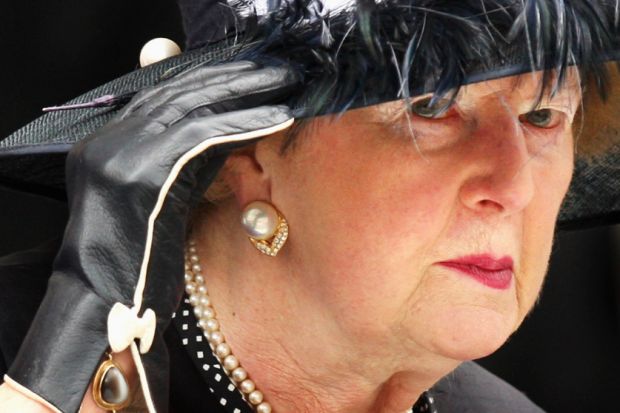Margaret Thatcher was urged to “experiment” by privatising a handful of universities and leaving them to “sink or swim”, newly released Downing Street files reveal.
Records of a seminar to discuss education, hosted by the then prime minister in October 1985, detail how Lord Beloff, who had previously served as vice-chancellor of the private University of Buckingham, urged Baroness Thatcher to consider “an experiment in the privatisation of two or three [publicly funded] universities”.
“The annual grant to those universities should be compounded as a capital sum and then the universities should be left to sink or swim,” recalls the note of the discussion, released by the National Archives today.
The document says that Lord Beloff won support for his proposal from several attendees at the event, who argued that it would “prompt greater competition between universities” and “make education more demand-led”.
But the suggestion was opposed by Sir Frederick Crawford, then vice-chancellor of Aston University, who said that it would require a “radical change in British culture” if UK higher education was to be sustained by the culture of philanthropy that sustained leading US colleges.
“There would moreover need to be a substantial increase in fees,” the note says. “In addition because universities were labour intensive their costs were rising more rapidly than general inflation, and this gap would always need to be bridged.”
Lord Beloff’s proposal was never enacted, but Lady Thatcher retained close links with Buckingham, which became the UK’s first private university in 1983. Earlier this year it was announced that a library and museum dedicated to her life would be housed there.
The note released by the National Archives also reports other details of the seminar. Kenneth Minogue, professor of government at the London School of Economics, gave an opening address that complained of “a paradox that a government which was committed to autonomy had become more dirigiste”.
He argued that universities should be freed from “unnecessary constraints imposed by central government” by being allowed to “charge students economic fees with a system of scholarships for home students”.
There was much discussion of the “relevance” of university courses, while Baroness Cox, a Conservative peer and former director of the Nursing Education Research Unit at Chelsea College, University of London, expressed concern about “the extent to which student unions were widening their activities beyond the provision of facilities of students, engaging especially in political censorship of views with which they disagreed”.
“The government should seriously consider making membership of student unions voluntary,” the note of the discussion records.
A note prepared for Lady Thatcher by Oliver Letwin, then a No 10 adviser and later a Conservative minister, states that participants were invited because they “share[d] the government’s concern for standards”.




